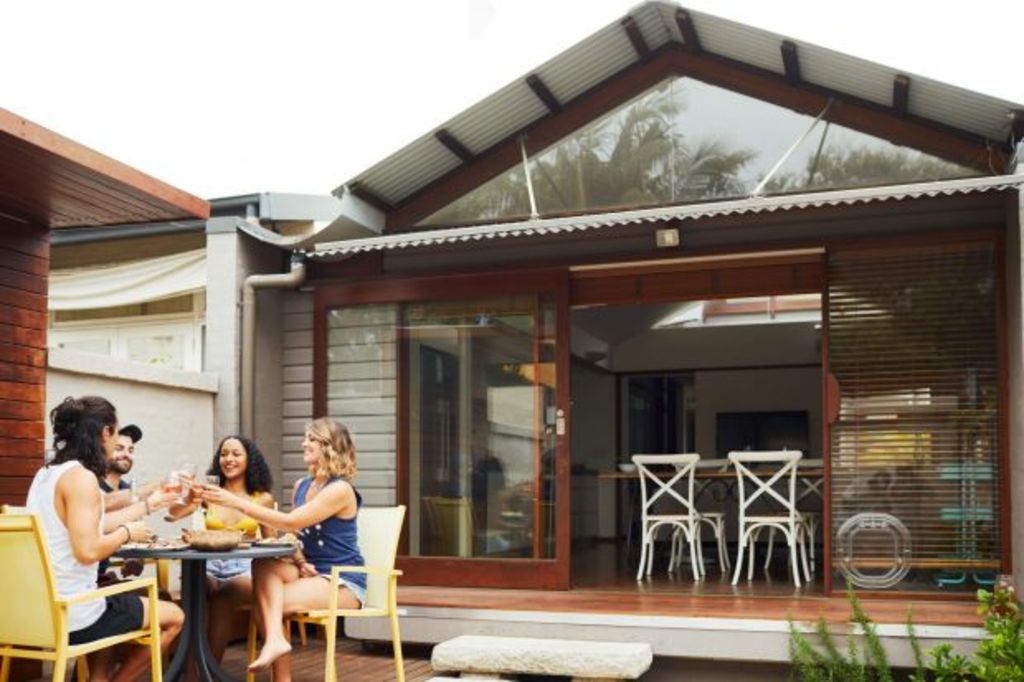The perfect balance: What you should and shouldn't compromise on when buying a home

As difficult as it can be, compromise is an essential part of the home-buying process.
Few of us have bottomless pockets, and in expensive capital cities, finding a home that ticks every box while coming in under budget is near impossible.
Compromise doesn’t have to mean settling for a house you don’t want. “I always say it’s more about flexibility than compromise,” says Lauren Goudy, buyer’s agent at Rose & Jones.
Few buyers would want to part with their life savings, only to find themselves stuck in a property they don’t enjoy living in.
Reorganising your priorities so that you’re paying only for the features of a property that you need and want, not the ones you don’t, will create a better outcome.
When to put your foot down

When considering a property, price, location and the type of accommodation are key. Photo: iStock
The three main factors buyers need to consider are price, location and the type of accommodation, according Wakelin Property Advisors director Paul Nugent, and one is less flexible than the others.
“If you get the location right, it enhances your life in ways you can’t imagine,” Nugent says.
- Related: Why Sydney’s Gen Y can stop crying
- Related: Where to buy now Sydney’s median has dropped
- Related: Why the first property you buy is crucial
Before dismissing an area as too expensive, investigate which properties in that area fall within the budget. It’s likely this will mean compromising on size, condition – or perhaps both.
Over time and with enough money, it’s possible to update or replace almost every part of a property, but the location can never be changed.
“If it’s in your price range and ticks nine out of 10 boxes for your lifestyle, you want to make sure that you get the property,” Nugent says.
“If it takes an extra five per cent to buy it, and you can see yourself being there for 20 years, spend the money and buy it.”

“If it’s in your price range and ticks nine out of 10 boxes for your lifestyle […] make sure that you get the property.” Photo: Stocksy
When price is the inflexible factor and the ideal area proves unaffordable, it’s still possible to compromise without losing major lifestyle benefits.
“Go one step out, and live in an area that’s close to where you want to be,” Nugent says.
Buyers should also be aware of what Goudy describes as “perpetual issues” of a property – negative features that can’t be changed, such as lack of natural light due to the aspect or adjacent buildings.
“You need to look at all the reasons you shouldn’t buy it, because those are the things that are going to put people off when it comes time to sell,” she says.
When to compromise

Properties in need of a renovation may seem like a bargain, but consider the long-term costs. Photo: Peter Rae
Taking a glass-half-full approach and viewing compromises as opportunities can help change a buyer’s frame of mind.
“If it’s dated and old, you could renovate and that might be an opportunity,” Goudy says.
Tired properties in need of renovation may prove more affordable, and if the updates required are only cosmetic rather than structural, renovations can be relatively inexpensive.
However, if the cost of a renovation pushes the total investment above that of a move-in-ready property, buying a fixer-upper may be a false economy. Do the numbers first.
In terms of size, properties with more bedrooms will likely be more expensive, so assess whether a guest bedroom is necessary. Likewise, if a study or home office is required, a built-in desk in a nook may suffice.

Suburbs close to the city with parking will cost you extra. Photo: Steven Woodburn
In inner-city areas, parking comes at a premium, increasing the price tag up by to $100,000. This may be time to decide whether that second car is necessary.
There is a risk that a heavily compromised “bargain” can cause problems further down the track, according to Goudy. “If you buy a property that sold cheaply because there are a lot of compromises involved, you’ve got to expect to be in the same scenario when it comes time to sell or lease the property.”
The key to a successful purchase is realising that compromise is necessary early in the buying process.
“Often you hear people say ‘the property I saw first was the property I should have bought’,” Nugent says.
By realistically prioritising what you really need, what can be improved later, and what isn’t necessary at all, you may be surprised at how many ideal properties fall into your budget.
We recommend
We thought you might like
States
Capital Cities
Capital Cities - Rentals
Popular Areas
Allhomes
More







